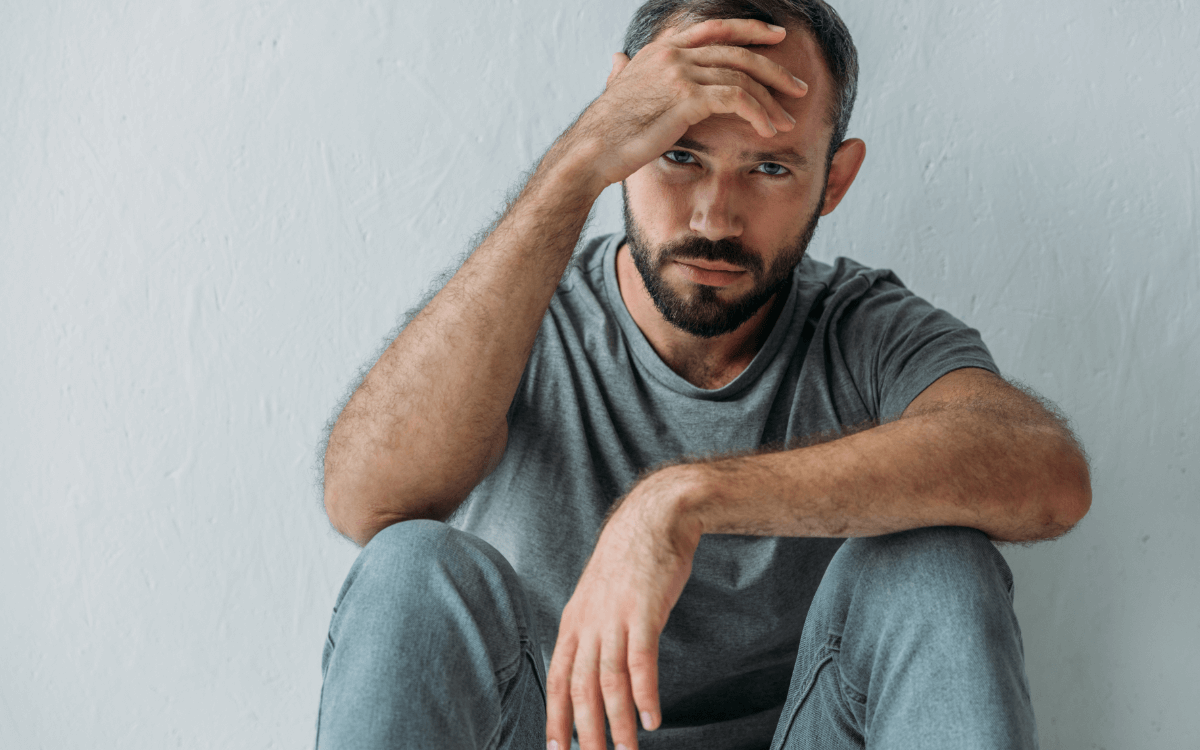Table of Contents
Addiction is a topic that affects many people—directly or indirectly. Perhaps you know someone struggling with addiction? Or maybe you’ve noticed certain behaviors in yourself that could be considered addictive? Are you unsure what addiction actually is, what forms it can take, and where to find help in Germany? Then keep reading—we’ll provide you with all the essential information in this article.
What Is Addiction?
Officially, addiction is a disease characterized by a compulsive urge for a particular substance or behavior. Those affected often lose control over their consumption or actions, even when the negative consequences are obvious. The World Health Organization (WHO) defines addiction as a “state of periodic or chronic intoxication caused by repeated use of a natural or synthetic drug.”
Simply put, addiction means that you, as someone affected, can no longer function without a particular substance or behavior—whether it’s alcohol, nicotine, or cocaine, or an activity like gambling. Your urge is so strong that you lose control and continue despite knowing it harms you. Addiction can be extremely taxing both physically and mentally and can massively impact your social life. Many people find it difficult to overcome addiction alone. That’s why seeking professional help is crucial.
Common Causes of Addiction
Recent figures from the German Centre for Addiction Issues (DSH) show that in 2023, around nine million people in Germany consumed alcohol and about 1.5 million used illegal substances like cannabis, cocaine, and (meth-)amphetamine at problematic levels. Approximately 166,000 people had an opioid use disorder. Additionally, around 1.3 million people were diagnosed with gambling addiction, while another three million exhibited problematic gambling behavior. This means that it is not yet a behavior based on an existing addiction, but that the behavior is, so to speak, one step lower.
Addiction doesn’t appear out of nowhere. Like any other disease, it has multiple causes, including:
- Genetic predisposition (in combination with other factors)
- Psychological factors such as stress, trauma, or depression
- Social influences and environmental conditions
- Neurobiological processes that affect the brain’s reward system
- Easy availability of addictive substances and established habits
Addiction often develops gradually. What starts as occasional use can turn into a life-dominating habit.
Types of Addiction
Addiction has many “faces” and manifests in different forms. Generally, there are two main categories: substance-related and non-substance-related addictions.
Substance-Related Addictions
This refers to dependencies on chemical substances that affect the brain’s reward system:
- Alcohol addiction: Alcohol is one of the most common addictive substances. Dependence can be both physical and psychological.
- Drug addiction: Illegal drugs such as cocaine, heroin, or amphetamines can lead to severe addiction after only a few uses.
- Nicotine dependence: Tobacco consumption not only causes health damage but also leads to strong physical and psychological dependency.
- Prescription drug addiction: Painkillers, sleeping pills, and tranquilizers can become addictive if misused.
Non-Substance-Related Addictions
These do not involve substances but rather compulsive behaviors that can have negative consequences:
- Gambling addiction: Gambling can lead to financial, social, and family problems.
- Internet addiction: Compulsive use of social media, online gaming, or streaming services can severely impact daily life (including pornography addiction).
- Eating disorders: This includes anorexia, bulimia, and binge eating, which can have severe psychological and physical consequences.
- Shopping addiction: Excessive shopping often leads to financial burdens and usually stems from deeper psychological issues.
- Work addiction: When work becomes the sole focus of life, it can lead to exhaustion and social problems.
Symptoms and Consequences of Addiction
You can recognize addiction through various symptoms, which differ depending on the type of dependency. Common signs include:
- An overwhelming urge to obtain and consume the substance (for substance-related addiction)
- An uncontrollable compulsion to engage in certain behaviors (for non-substance-related addiction)
- Neglecting social and professional responsibilities
- Withdrawal symptoms (physical and/or psychological) when not consuming
- Constantly increasing dosage or intensity (tolerance buildup)
- Continuing use despite negative consequences
The consequences of addiction can be severe. In the worst case, addiction can lead to life-threatening physical damage, such as liver failure from excessive alcohol consumption or lung disease from smoking. Mental health disorders, such as depression or anxiety, are also common. Social consequences may include isolation, job loss, financial problems, and strained relationships. Many relationships fail because addiction takes priority over partners and family.

Why Overcoming Addiction Is Worth It
If you’ve fallen into addiction, it takes a lot of effort to break free. Encouraging yourself is crucial. The best way to do this is by focusing on the benefits of a life without addiction. There are many good reasons to fight against your inner resistance and conquer addiction. It may sound cliché, but overcoming addiction can make you feel like a whole new person.
Breaking free from addiction means reclaiming your freedom. No longer will substances or compulsive behaviors dictate your life—you will once again be in control of your decisions, free from intoxication. With a clear mind, you can better address your problems. While alcohol, drugs, and gambling may temporarily distract you from your issues, they won’t make them disappear.
Another key reason to overcome addiction is regaining your dignity. Without addiction, you’ll experience fewer embarrassing moments of regret. You will also have the strength to change your life and find happiness in ways that don’t harm you. True, lasting happiness can only exist with a clear mind. Any sense of pleasure created by addiction is an illusion—it disappears once the high fades.
Additionally, breaking free from addiction puts an end to secrecy and guilt. It allows your family, friends, and colleagues to engage with you in a healthier, more supportive way. When you admit to having a problem and seek help, you take the first step toward recovery.
Physically, freeing yourself from addiction allows you to rediscover your body. As soon as you quit addictive substances or break free from behavioral addictions like gambling or excessive internet use, you’ll notice positive changes, both physically and mentally. You’ll start to feel good in your own skin—not just for a few moments during a high but in a lasting way.
For relationships, overcoming addiction can be a lifesaving step. No matter how much love exists, no one can tolerate being placed second to addiction forever.
Finding Help for Addiction in Germany
If you or someone you know is struggling with addiction, many resources are available. The most important step is to ask for support.
Counseling Centers
- German Centre for Addiction Issues (DHS): Provides information and contact details for support services.
- Addiction and Drug Hotline: Call 01806 313031 for anonymous advice from Monday to Sunday between 8:00 AM and midnight.
- Caritas Addiction Help (CaSu): Offers support for individuals and families.
- Diakonie Addiction Help: Lists counseling centers throughout Germany on its website.
Support Groups
Support groups are a low-threshold way for many people to address their addiction. They provide a space for exchanging experiences and coping strategies:
- Alcoholics Anonymous (AA): Support for individuals struggling with alcohol dependency.
- Narcotics Anonymous (NA): Comprehensive support for those with drug addictions.
- Guttempler in Deutschland: Assistance for people with addictions and their families.
Therapy Options
IIf your addiction is already very severe, professional therapy may be necessary. This can take the form of outpatient therapy in the form of regular sessions with therapists or addiction counselors. However, it is also possible to undergo inpatient therapy. This consists of a stay in an addiction clinic, which can often last several weeks or months. Withdrawal clinics that offer medically supervised withdrawal programs for physical addictions are suitable. Clinics and free therapy places usually have to be arranged via the health insurance company or GPs. However, pension insurance also often offers support with rehab measures. There can often be longer waiting times for the allocation of places because there are only a limited number of therapy places available.
Conclusion: Your Addiction Is Treatable
Addiction is a serious condition, but it is treatable. Acknowledging the problem and seeking support is always the first step toward recovery. Germany offers numerous resources and institutions to help you lead a life free from addiction. No matter how challenging the journey may be, you are not alone—there are experts ready to help you.
|
